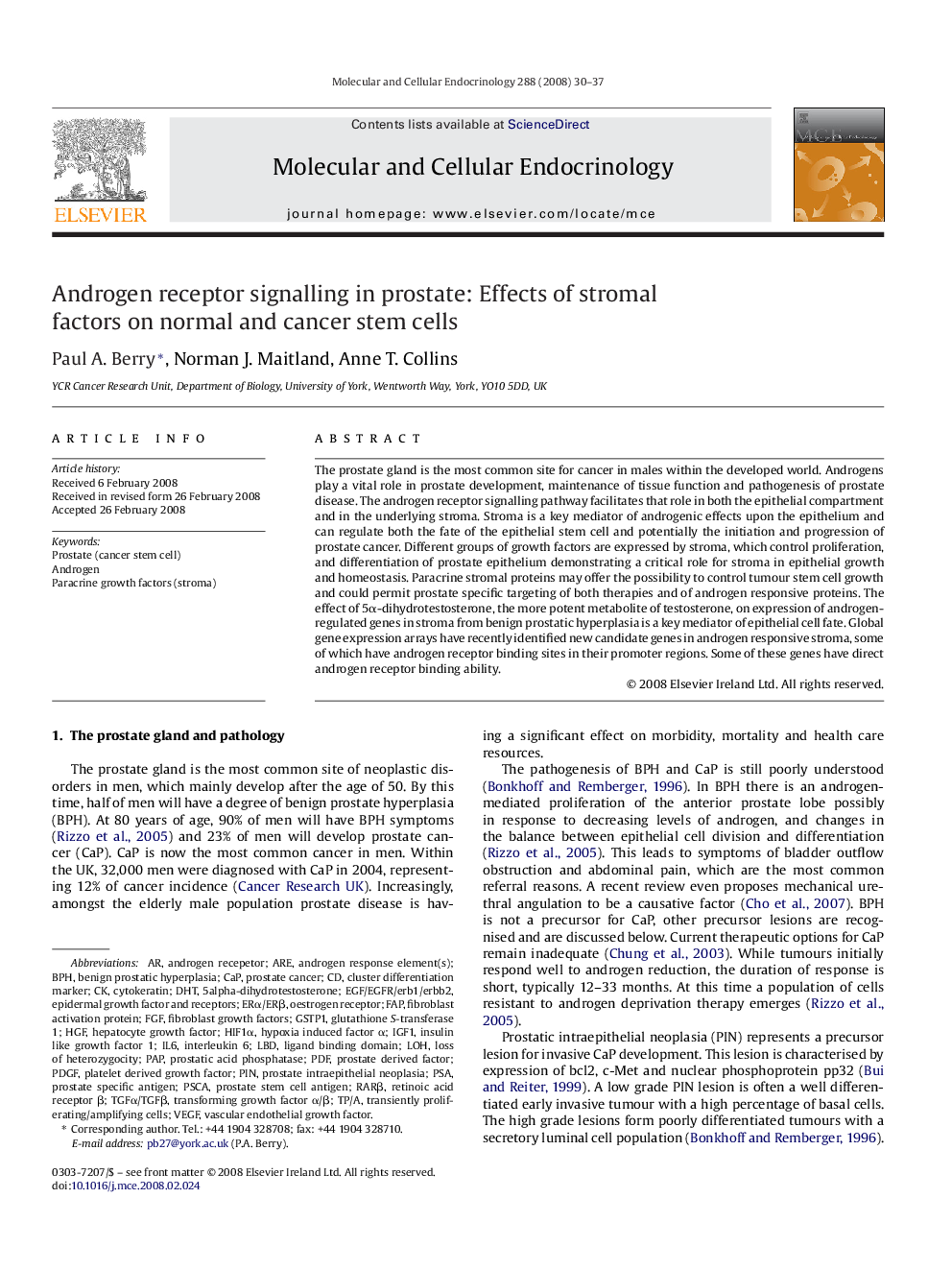| Article ID | Journal | Published Year | Pages | File Type |
|---|---|---|---|---|
| 2197680 | Molecular and Cellular Endocrinology | 2008 | 8 Pages |
The prostate gland is the most common site for cancer in males within the developed world. Androgens play a vital role in prostate development, maintenance of tissue function and pathogenesis of prostate disease. The androgen receptor signalling pathway facilitates that role in both the epithelial compartment and in the underlying stroma. Stroma is a key mediator of androgenic effects upon the epithelium and can regulate both the fate of the epithelial stem cell and potentially the initiation and progression of prostate cancer. Different groups of growth factors are expressed by stroma, which control proliferation, and differentiation of prostate epithelium demonstrating a critical role for stroma in epithelial growth and homeostasis. Paracrine stromal proteins may offer the possibility to control tumour stem cell growth and could permit prostate specific targeting of both therapies and of androgen responsive proteins. The effect of 5α-dihydrotestosterone, the more potent metabolite of testosterone, on expression of androgen-regulated genes in stroma from benign prostatic hyperplasia is a key mediator of epithelial cell fate. Global gene expression arrays have recently identified new candidate genes in androgen responsive stroma, some of which have androgen receptor binding sites in their promoter regions. Some of these genes have direct androgen receptor binding ability.
